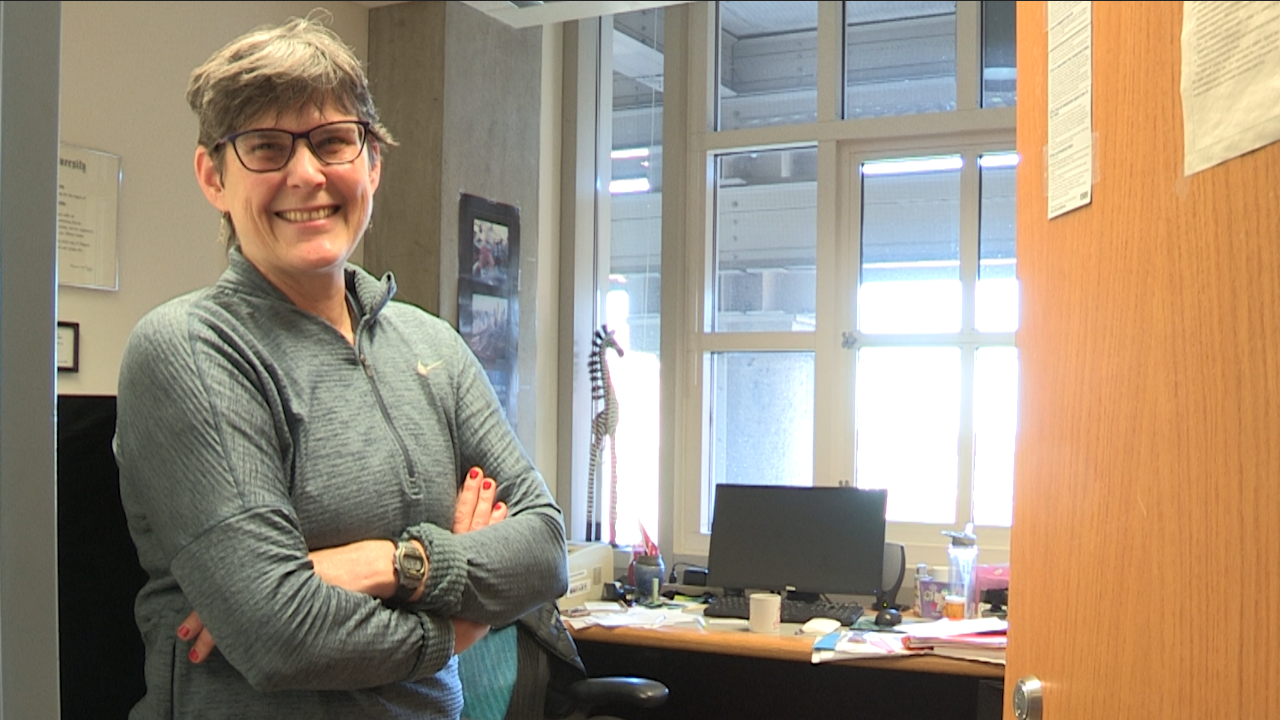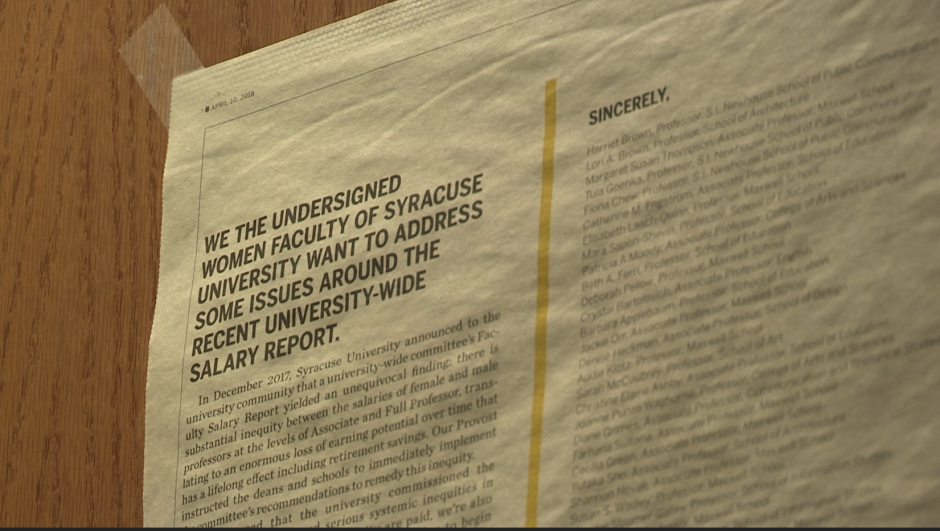
Video Transcript:
By Cameron Tirado SYRACUSE, N.Y. (NCC News) — When you walk into Maxwell Professor Audie Klotz’s office, the first thing you’ll notice is an article on the door from the Daily Orange. It tells the story of a report from 2017 about how women and men faculty across Syracuse University are paid different amounts of money for doing the same type of work. Even though it’s been two years, Klotz says the newspaper clipping won’t come down until salaries are equal.
“I started to meet other senior women faculty, and hear some of their experiences,” Klotz says. ” so that was kind of eye-opening to discover all of the different ways in which women ended up at the same endpoint even though our trajectories to how we got there were quite unique and distinctive.”
This past week, Governor Andrew Cuomo’s new legislation about pay equity went into effect. Every workplace in the state now has to pay employees the same rate for performing similar work. For those who don’t comply, the government will enforce a civil penalty of $500 per instance.

Klotz is appreciative of the state’s efforts to address this discrimination, but she doesn’t think it’s enough. She believes every employee’s income should be public knowledge. Her argument is that if there is no transparency in the numbers, there is no way for people to identify that a problem exists.
“I came here from a public university, and in public universities, everybody’s individual salary is available because it’s part of the state budget,” Klotz explains. “So for me, it’s a very different kind of environment. I personally don’t understand why private universities shouldn’t just make salary information available because it’s not harming people at public universities. I’m not sure where this idea of a kind of privacy of salary information comes from, and why it seems to be a sticking point.”
Klotz came to SU in August of 2003. She mostly teaches international relations in the political science department. She says she wasn’t surprised to find out faculty were getting paid differently, but she’s grateful so many women came forward to share their experiences.
Another new law is now in effect for workplaces across New York in response to women coming forward with their mistreatment stories — mandatory sexual harassment training. Following Harvey Weinstein’s accusations and the emerging #MeToo Movement, the city and the state are making it easier for women to express concerns and employees to understand appropriate behavior.
The Human Rights Law now protects victims of harassment, including sexual harassment, in important new ways such as ensuring that harassment does not need to be “severe or pervasive” to be against the law, the New York State website states. Looking forward, in August of 2020, the statute of limitations for filing a sexual harassment complaint with the Division of Human Rights will be extended from one year to three years.




